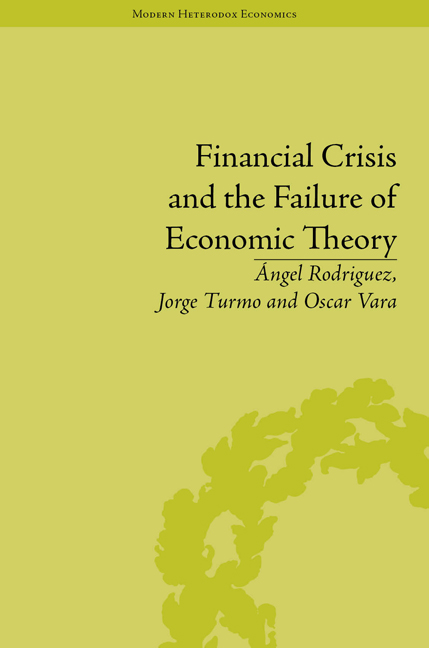Book contents
- Frontmatter
- Contents
- Acknowledgements
- List of Figures
- Introduction
- 1 The Financial Crisis and Modern Economics: From Surprise to Puzzlement
- 2 A Different Look at Economic Theory: The Anthropological Approach
- 3 The ‘Building Blocks’ of Modern Economics: We Do Really Need a Meta-Theory
- 4 The Meta-Theory at Work: A Case Study in Growth Theory and Real Business Cycle Theory
- 5 Governments and the Financial Crisis: Making Economic Policy in the Dark
- 6 Explaining More Complex Phenomena: The Financial System
- Final Remarks
- Notes
- Works Cited
- Index
Introduction
- Frontmatter
- Contents
- Acknowledgements
- List of Figures
- Introduction
- 1 The Financial Crisis and Modern Economics: From Surprise to Puzzlement
- 2 A Different Look at Economic Theory: The Anthropological Approach
- 3 The ‘Building Blocks’ of Modern Economics: We Do Really Need a Meta-Theory
- 4 The Meta-Theory at Work: A Case Study in Growth Theory and Real Business Cycle Theory
- 5 Governments and the Financial Crisis: Making Economic Policy in the Dark
- 6 Explaining More Complex Phenomena: The Financial System
- Final Remarks
- Notes
- Works Cited
- Index
Summary
The financial crisis abruptly disrupted a long period of continuous economic growth and low unemployment levels in developed countries. Along with the outstanding performance of the Chinese economy and the upsurge of Russia, Brazil and India, worldwide economic prospects were brilliant. In addition, inflation was under control, world trade was increasing considerably and many developing countries were escaping from poverty. Moreover, experts did not forecast any serious trouble in the near future, just some corrections of global imbalances through a soft-landing process. The crisis came as a complete surprise. People in developed countries, including experts and economists, were also astonished. Reports on the financial crisis issued by the IMF, the World Bank or the European Union repeated the same mantra: the crisis was unexpected. This approach to the crisis can be resumed as the ‘No one saw it coming’ hypothesis. In Chapter 1, we will explain that this hypothesis is incorrect, because some experts did see it coming and gave very clear warnings about the devastating effects of the coming crisis, but they were only credited when GDP and unemployment figures were worse than the worst warnings.
The next step was twofold: on the one hand policymakers had to deal with huge, and to a certain extent, new problems, as we explain in Chapter 5. On the other hand, there was a search for something or someone to be blamed for the crisis. There were many candidates.
- Type
- Chapter
- Information
- Publisher: Pickering & ChattoFirst published in: 2014



